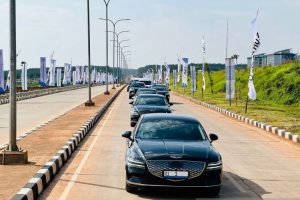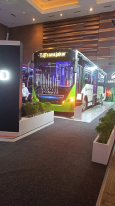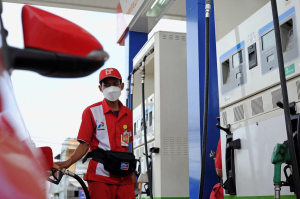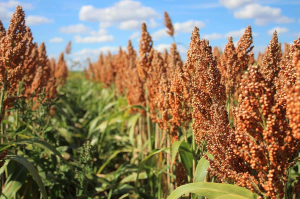Risks, opportunities of EVs in Indonesia
The recent Gaikindo (Association of Indonesian Automotive Manufacturers) Indonesia International Auto Show (GIIAS) promoted automotive electrification of various brands. A total of 24 carmakers took part in the annual event including major brands of Toyota, Mazda, Nissan, Wuling and Hyundai. Motorcycle producers and components also took part in the event.
This proves confidence in Indonesia's automotive market in transitioning itself to Electric Vehicles (EVs) to replace fossil fuel-based vehicles. However, problems persists.
EV sales with limited consumers
The confidence of Indonesia stirs from the need to catch up with zero-emission by 2060. Also, it shows the confidence of the EV industry, its concern for the environment and its interest in EVs. Brands such as Hyundai, Wuling, Toyota and Mitsubishi are committed to EVs. Meanwhile, the government is striving to transition itself to fully use electric cars. Yet, there are problems or hindrances to Indonesia's efforts in transition to EV.
"The problem is, Indonesia still has local taxes," said Coordinating Minister for Economic Affairs Airlangga Hartarto during the GIIAS opening on August 11, 2022.
On the other hand, Indonesia’s automotive production is far behind Thailand. In 2018, Indonesia produced 1,348,714 units compared to Thailand's 2,167,694 units. A year later, car manufacturing in both countries declined but Indonesia produced 1,286,848 units while Thailand 2,013,710 units.
When the COVID-19 pandemic hit hard globally in the year 2020, car productions in both countries dropped to 690,150 in Indonesia while Thailand recorded 1,427,074 units. As the economy slowly recovered in 2021, so was the automotive industry. Indonesia produced 1,121,967 units while Thailand 1,658,705 units. Until July 2022, Indonesia made 658,285 cars compared to Thailand's 911,087.
While the transition toward eco cars in Thailand had far passed comparing Indonesia, Thailand introduced policies regarding eco cars in 2008. Meanwhile, Indonesia introduced it only in 2013. On the other hand, Indonesia's car production was mainly a hybrid electric vehicles (HEV) compared to Thailand's. Furthermore, Thailand's EV brands consist of 28 BEV (battery electric vehicles) models while Indonesia only has 6 BEV models such as Hyundai Ioniq, Kona and Genesis, Lexus UX 300e, Nissan Leaf and DSFK Gelora EV.
President Joko Widodo said in an interview with Bloomberg on August 19, 2022: “What we want is the electric car, not the battery. For Tesla, we want them to build electric cars in Indonesia... We want a huge ecosystem of electric cars.”
Read also: Indonesia aims high on EV, but challenges remain
Problems during transition period
Transitioning toward EVs from fossil fuel consumers in Indonesia is seen as a problem. Other problems consist of the price of EVs, limited segment, and the ability of Indonesia in providing infrastructure.
Dodiet Prasetyo, an official from the Ministry of Industry, explained, as quoted by Antara news agency: "There may be other technologies in the future that may provide better results for renewable energy. However, we still support EV development in Indonesia."
"EV is still considered an expensive product from its high price and limited models," said Gaikindo chairman Jongkie Sugiarto.
Marketing Director for Toyota Astra Motor Anton Jimmi Suwandy concurred. "The consumers are still limited, and they are also the owners of premium cars," he added.
Industry Minister Agus Gumiwang Kartasasmita expressed his optimism that Indonesia could keep up with Thailand because Indonesia has the resources to do so.
"Indonesia has a competitive advantage in terms of nickel and cobalt, which are the important materials for lithium batteries,” he said.
Read also: Government provides support to automotive industry facilities, including EVs
Challenges to Indonesia's commitment to EV
The flawless ecosystem for EVs in Indonesia remains hard to realize. Much of the power of EVs comes from coal according to Antara news agency.
Darmaningtyas, chairman of the Institute of Transportation Study (Instran), made an observation and he said that 63% of electric fuels come from coal which was not eco-friendly. This would only delay pollution, instead of making news of cleaner energy.
The expensive price of EVs, according to Darmaningtyas, will also hinder the transition process. "If it is economically beneficial, then the people will automatically switch to EV by themselves," he added.
Already have an account? Sign In
-
Start reading
Freemium
-
Monthly Subscription
20% OFF$29.75
$37.19/MonthCancel anytime
This offer is open to all new subscribers!
Subscribe now -
Yearly Subscription
33% OFF$228.13
$340.5/YearCancel anytime
This offer is open to all new subscribers!
Subscribe now







